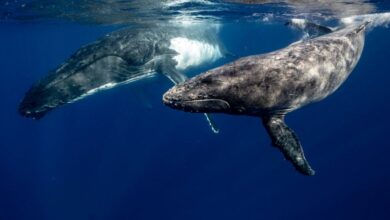What Are the Environmental Impacts of Whale Watching
Whale watching has emerged as a popular eco-tourism activity, drawing millions of enthusiasts to coastal regions around the world. The thrill of witnessing these majestic marine mammals in their natural habitat creates a profound connection between humans and nature. However, this increasing popularity raises important questions about the environmental impacts of whale watching. While it can promote conservation awareness and contribute to local economies, it also presents challenges that warrant careful consideration.
Effects on Marine Life
The presence of boats in whale habitats can disrupt the delicate balance of marine ecosystems. The noise generated by engines and the vibrations produced by vessels can interfere with whales’ communication and navigation, which rely heavily on echolocation. This disruption may lead to increased stress levels in whales, affecting their feeding, mating, and migration patterns. Some species, particularly those already endangered, may struggle to cope with additional disturbances, putting their survival at risk.
Moreover, the proximity of boats to whales can cause behavioral changes. Whales may alter their swimming patterns or dive deeper than usual, leading to energy depletion. In extreme cases, close encounters with vessels can result in physical harm or even death. It is crucial for tour operators to adhere to guidelines that limit the distance between boats and whales to minimize these impacts.
Pollution and Waste Management
As whale watching becomes more widespread, the associated pollution issues cannot be ignored. Boats emit greenhouse gases and other pollutants that can degrade water quality and harm marine ecosystems. Fuel spills, noise pollution, and litter from tourists can contribute to the degradation of whale habitats. Proper waste management practices are essential to mitigate these environmental impacts. Operators should implement strict protocols to ensure that waste is disposed of responsibly and that marine areas remain clean.
The introduction of non-native species is another concern. Boats can inadvertently transport invasive species from one location to another through ballast water or barnacles attached to hulls. These species can disrupt local ecosystems, outcompeting native species and altering habitats. It is crucial for whale watching operators to take preventive measures to minimize the risk of introducing non-native species into pristine environments.
Impact on Local Communities
While the economic benefits of whale watching are significant, they can also lead to unsustainable practices. Increased tourism can place pressure on local resources, such as water and energy supplies, potentially leading to overexploitation. Additionally, the influx of visitors can strain local infrastructure, including roads and waste management systems. Communities may face challenges in balancing the economic advantages of whale watching with the need to protect their natural environment and quality of life.
Furthermore, the commercialization of whale watching can shift the focus from conservation to profit. If not managed responsibly, this can result in overcrowded viewing areas, where the experience becomes more about quantity than quality. Tour operators must prioritize sustainable practices, ensuring that their operations contribute to conservation efforts rather than detracting from them.
Responsible Whale Watching Practices
To mitigate the environmental impacts of whale watching, it is essential for both operators and tourists to adopt responsible practices. Tour operators should follow established guidelines to minimize disturbances to marine life. These guidelines often include maintaining a safe distance from whales, limiting the number of boats in a viewing area, and avoiding sensitive habitats during breeding and feeding seasons.
Tourists can also play a role in promoting sustainable whale watching. Educating themselves about the species they are observing, respecting wildlife, and supporting environmentally conscious operators can make a significant difference. By prioritizing ethical practices, whale watchers can contribute to the preservation of these magnificent creatures and their habitats.
Towards a Sustainable Future
The future of whale watching hinges on the delicate balance between enjoyment and conservation. As awareness of the environmental impacts grows, it is imperative for stakeholders to prioritize sustainability. This involves collaborating with conservation organizations, implementing best practices, and fostering a culture of respect for marine ecosystems. By embracing responsible whale watching, we can ensure that future generations will continue to experience the wonder of these incredible animals in their natural environment.







